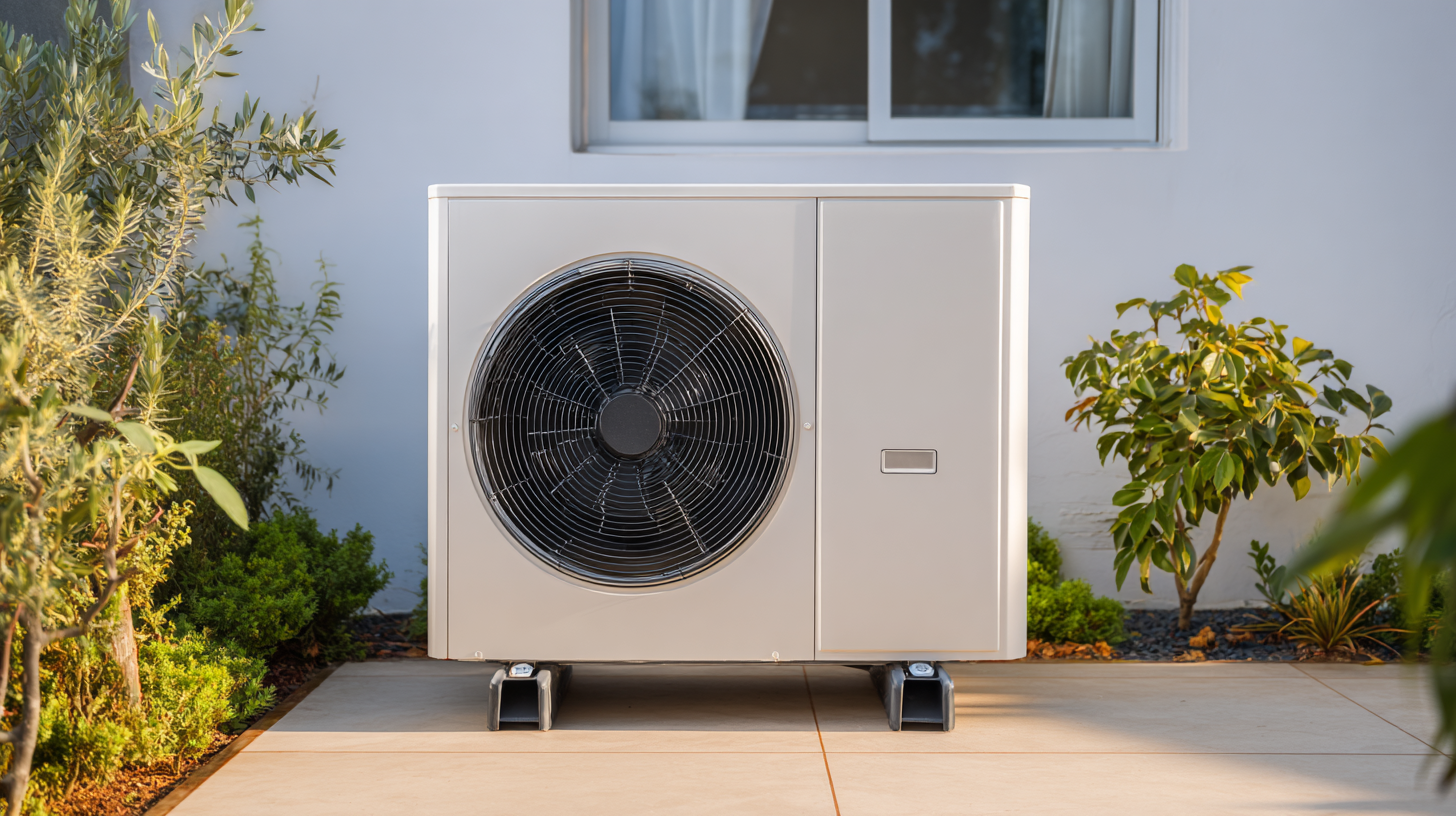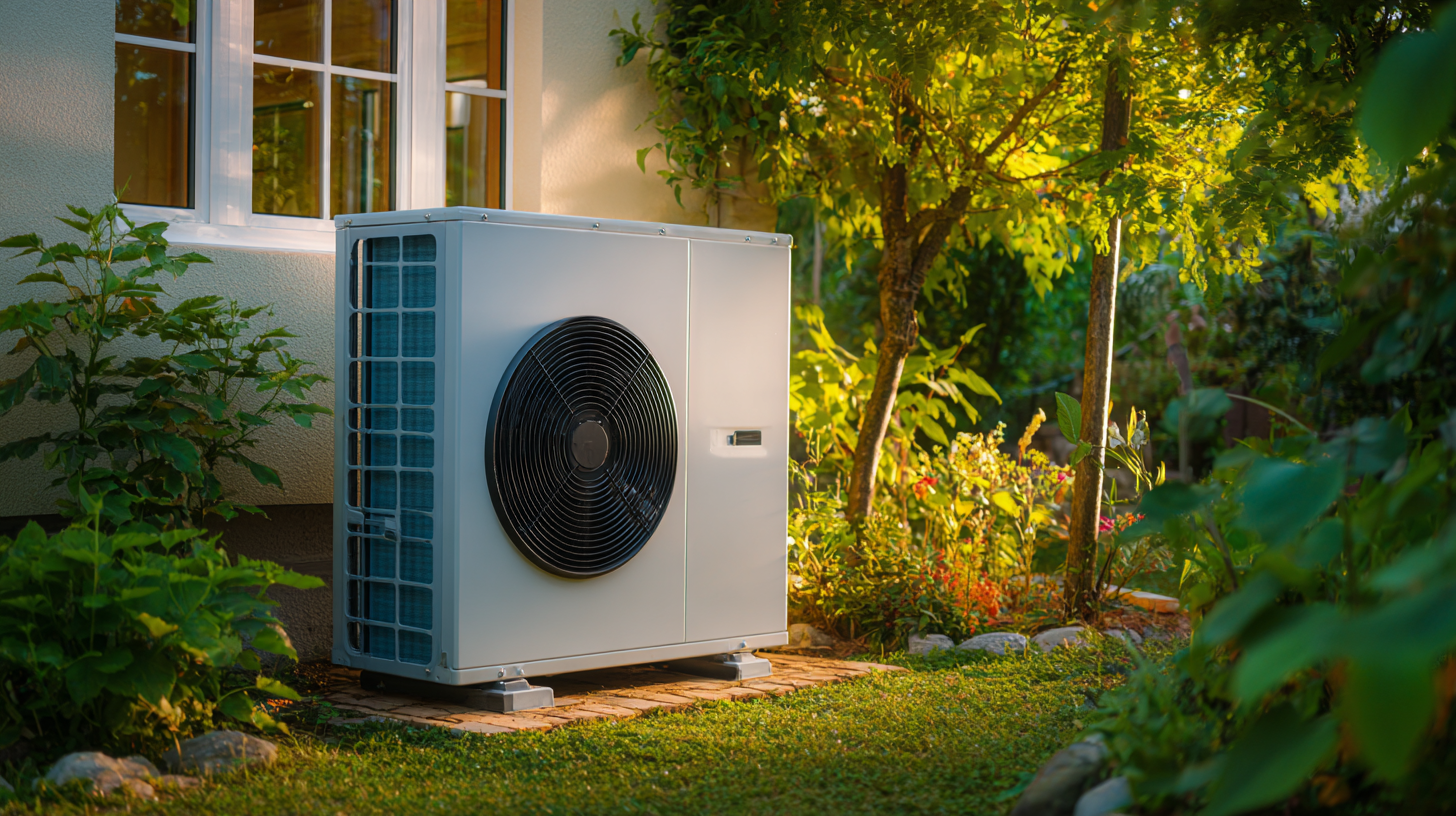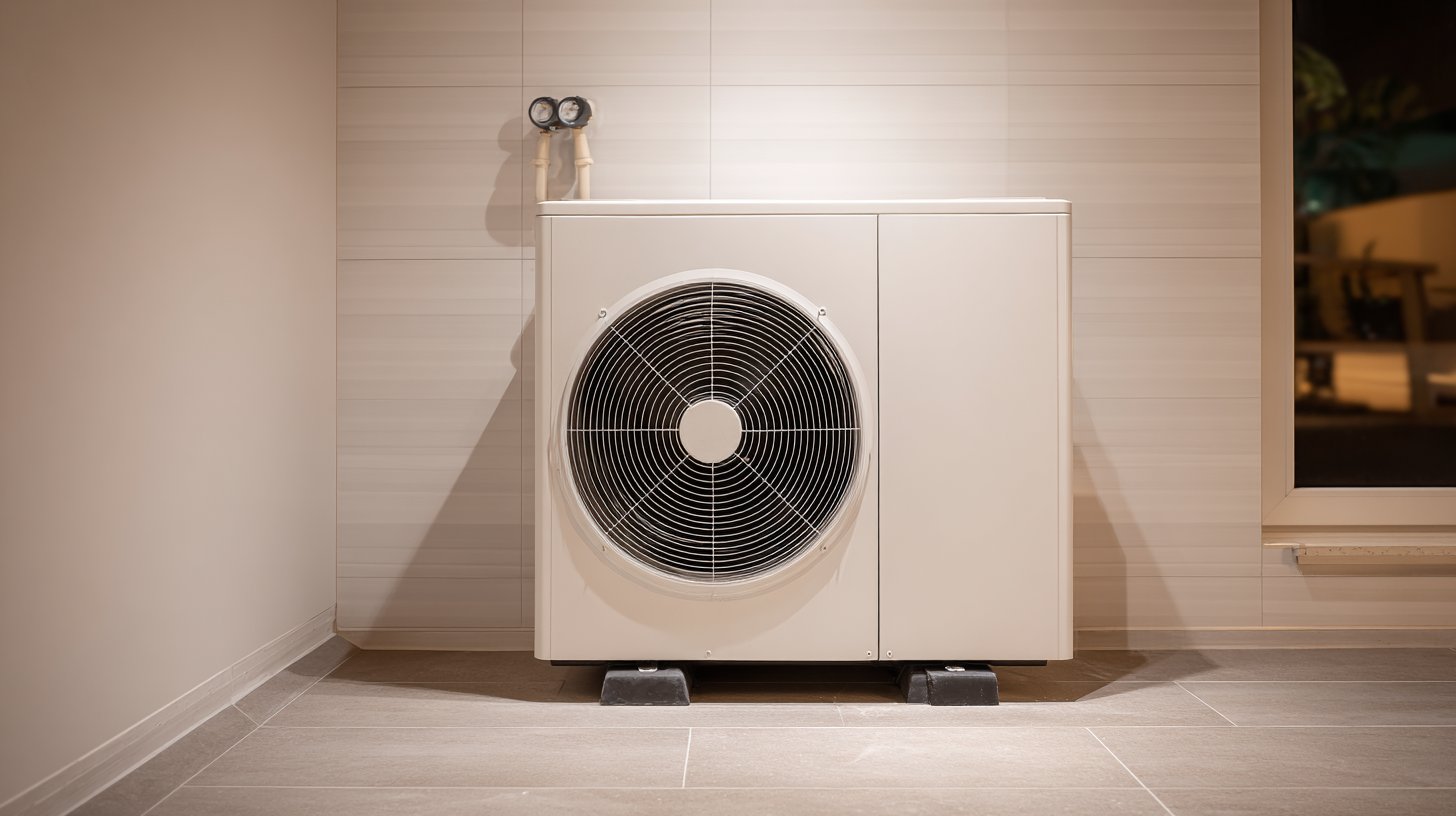Leave Your Message
 Choosing the right water heatpump for your home is a crucial decision that can significantly impact your energy efficiency, comfort, and overall utility costs. With a variety of options available in the market, it can be overwhelming to determine which heatpump best suits your needs. This guide aims to simplify the selection process by providing essential tips that will equip you with the knowledge needed to make an informed choice.
Choosing the right water heatpump for your home is a crucial decision that can significantly impact your energy efficiency, comfort, and overall utility costs. With a variety of options available in the market, it can be overwhelming to determine which heatpump best suits your needs. This guide aims to simplify the selection process by providing essential tips that will equip you with the knowledge needed to make an informed choice.
We will explore key factors such as system size, energy efficiency ratings, installation requirements, and maintenance considerations, as well as the benefits of each type of water heatpump. By understanding these elements, you will be better positioned to select the ideal heatpump that aligns with your home’s specifics and long-term goals.
Whether you are upgrading your existing system or installing a new one, our insights will help ensure that you invest wisely in a water heatpump that meets your expectations and enhances your living experience.
When selecting the right water heat pump for your home, it is crucial to first understand your hot water needs. Start by assessing the total number of occupants in your household, as this directly influences your hot water consumption. More residents typically translate to higher demand for hot water, requiring a heat pump with a larger capacity. Additionally, consider the peak usage times within your household—do you have multiple showers or appliances running simultaneously? Identifying these patterns will help you choose a system that can deliver adequate hot water without interruption.

Another key factor is the climate in which you live. Water heat pumps operate efficiently in moderate temperatures; however, their performance may decline in extremely cold environments. It’s essential to select a unit that is compatible with your local climate conditions. Additionally, consider the energy efficiency ratings of different models to ensure lower utility bills and a minimal environmental impact. By taking these factors into account, you can effectively choose a heat pump that meets your household's needs and ensures a continuous supply of hot water.
When selecting a water heat pump for your home, evaluating energy efficiency ratings is crucial for making informed choices. Energy efficiency ratings provide insights into the pump’s performance and potential energy savings over time. Look for models that feature the Energy Factor (EF) rating, which measures the amount of hot water produced per unit of energy consumed. Higher EF ratings indicate more efficient appliances, meaning you can enjoy lower utility bills while reducing your environmental impact.

In addition to the EF rating, consider the Seasonal Energy Efficiency Ratio (SEER) and the Heating Season Performance Factor (HSPF) for heat pumps. These metrics assess the efficiency of the heat pump in various seasons, giving a clearer picture of its overall performance throughout the year. Models with higher SEER and HSPF ratings often cost more upfront but will save money in the long run. Therefore, taking the time to evaluate these energy efficiency ratings can ensure you choose a water heat pump that meets your home's needs while maximizing energy savings.
When selecting a water heat pump for your home, sizing is crucial to ensure efficiency and comfort. The first step in finding the right capacity for your space is to conduct a thorough assessment of your heating requirements. This includes considering factors such as the square footage of your home, insulation quality, and local climate. An undersized heat pump may struggle to maintain desired temperatures, while an oversized unit can lead to energy wastage and increased costs.
One essential tip is to refer to the BTU (British Thermal Unit) ratings of heat pumps, which indicate the amount of heat a unit can provide. Calculate the total BTUs needed by determining the heating load of each room, allowing for an accurate match with the heat pump’s capacity. Additionally, consulting a professional can provide insights into specific needs based on your unique situation. Remember, proper sizing not only maximizes comfort but also enhances energy efficiency, leading to lower utility bills over time.
When considering the installation of a water heat pump, one of the primary choices homeowners face is whether to tackle the project as a DIY endeavor or to hire professional services. DIY installation can be significantly cost-effective, allowing homeowners to save on labor costs. However, it requires a fair amount of technical skill, knowledge of plumbing and electrical systems, and adherence to local building codes. Those who are handy and have done similar projects before might find the challenge rewarding and manageable, but it’s essential to assess both the technical aspects and the potential risks involved.
On the other hand, opting for professional installation can offer peace of mind. Experienced technicians are well-versed in the complexities of water heat pump systems and can ensure that the installation is completed efficiently and correctly. This route mitigates the risk of mistakes that could lead to costly repairs down the line. Moreover, professionals can often provide warranties and ongoing maintenance services, which can be invaluable for long-term performance and reliability. Thus, whether to go the DIY route or hire professionals largely depends on one's skill level, budget, and comfort with the complexities of such installations.
This chart compares key metrics between DIY and professional installation of water heat pumps. It shows that while DIY may offer lower initial costs, professional services provide better energy efficiency and longer-term benefits.
When selecting the right water heat pump for your home, understanding its maintenance requirements is paramount to ensure efficiency and longevity. According to the U.S. Department of Energy, regular maintenance can improve the efficiency of a heat pump by up to 20%, significantly reducing energy costs over time. Without proper upkeep, these systems can lose efficiency quickly, leading to higher utility bills and a potential decrease in performance.
Regular maintenance tasks include cleaning and replacing filters, checking the refrigerant levels, and inspecting the condensate drain for blockages. A report by the Air Conditioning, Heating, and Refrigeration Institute (AHRI) emphasizes that homeowners should schedule professional maintenance at least twice a year. This proactive approach not only enhances the heating efficiency but also extends the life of the heat pump, which typically lasts 10-15 years. Furthermore, a well-maintained heat pump operates more quietly and reduces the risk of unexpected breakdowns, ensuring comfort and peace of mind in your home.
| Tip | Description | Maintenance Frequency | Efficiency Impact |
|---|---|---|---|
| Evaluate Size | Choose a heat pump that fits your home's size for optimal performance. | Annual | High |
| Check Energy Efficiency Ratings | Look for models with high SEER ratings for better energy savings. | Every 6 months | Very High |
| Install Professionally | Ensure proper installation to maximize efficiency and lifespan. | N/A | High |
| Regular Filter Maintenance | Clean or replace filters regularly to maintain airflow and efficiency. | Monthly | Very High |
| Monitor System Performance | Regularly check the system for unusual noises or performance drops. | Quarterly | High |
| Annual Professional Check-up | Have a technician perform an annual maintenance check. | Annually | Very High |
| Keep Outdoor Units Clear | Ensure no debris obstructs the outdoor unit for free airflow. | Monthly | High |
